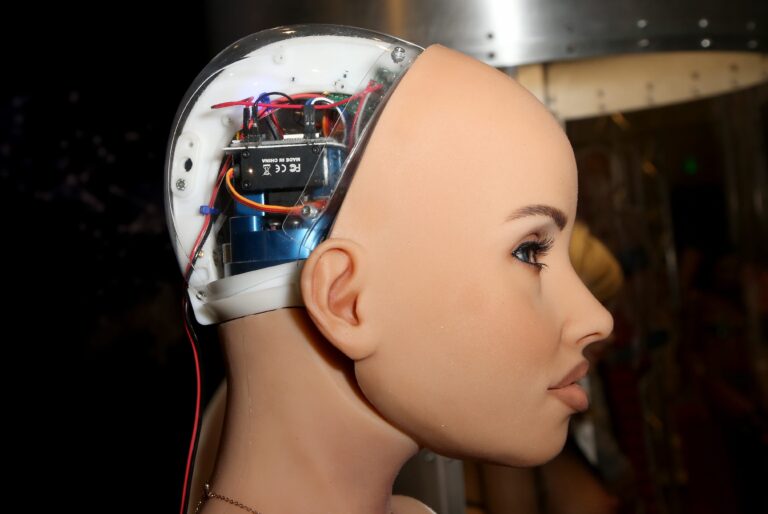In recent years, artificial intelligence (AI) has made leaps and bounds in terms of its capabilities. From self-driving cars to smart home devices, it seems there is no limit to what the technology can do. One area that is currently experiencing a surge of development is AI-powered sex robots or virtual companions.
This article will explore the current state of these robots and their potential implications for society in the future. We will look at what features they offer, how people are responding to them, and why this technology could be seen as both positive and negative by different groups within society.
Examining the Pros and Cons of Virtual Companions
One area of concern when it comes to AI and the sex industry is the rise of AI-generated pornography, commonly referred to as “AI porn”. Using deep learning algorithms and machine learning techniques, AI can create realistic pornographic content featuring real people without their consent.
While this raises obvious ethical concerns about consent and privacy, there are also broader societal implications to consider. For example, AI porn could potentially perpetuate harmful stereotypes and objectify individuals, particularly women. It could also contribute to the normalization of non-consensual behavior and further desensitize individuals to the harm of sexual exploitation. As technology continues to advance and AI becomes more sophisticated, it’s important to consider the potential consequences of its use in the sex industry and take steps to mitigate any negative impacts it may have.
Exploring the Potential Social, Ethical, and Legal Implications of AI-Powered Sex Robots

As AI-powered sex robots become increasingly available, it is important to consider the potential social, ethical, and legal implications of this technology. For example, there are clear concerns about how these robots could be used in a way that objectifies or commodifies people in society. Furthermore, questions arise about whether using such robots for sexual gratification may perpetuate existing gender stereotypes and inequalities.
On an ethical level, there is also the question of whether engaging with virtual companions has any moral implications given that they lack autonomy and free will. Finally, from a legal perspective, there remain numerous issues around consent and ownership which need to be addressed before these robots can enter mainstream use. Considering all these factors carefully is essential if we are to ensure that AI-powered sex robots are developed responsibly and safely integrated into our lives.
Understanding How AI-Powered Sex Robot Technology is Evolving
The evolution of AI-powered sex robot technology has been an incredible journey. From the early days when these robots were just a figment of science fiction, to today where they are becoming more and more realistic, it is clear that this technology is continuing to advance at a rapid pace. With advances in artificial intelligence, robotics, and materials sciences, these machines are now able to look and act like humans with incredible accuracy. As time progresses, so does the sophistication of these robots.
The implications of such advanced robots extend far beyond their use as companions for those seeking sexual pleasure or company – they have become increasingly sophisticated tools for scientists researching human behavior and social interaction. For example, some researchers believe that using AI-powered sex robots could allow us to better understand how people interact with each other by simulating real-life conversations between two robotic entities.
Additionally, due to their ability to replicate emotions accurately through facial expressions and body language, sex robots provide invaluable insight into how we respond emotionally in various situations – something which traditional methods struggle with due to inherent biases present within human interactions. It’s clear then that there is still much work left to be done before these types of virtual companions can truly mimic human traits perfectly; however, it’s exciting knowing what potential lies ahead should this technology continue on its current trajectory.
It will be interesting to see not only what new capabilities arise but also the ethical considerations concerning their proper usage in both public and private settings alike!
Investigating Consumer Attitudes Toward Virtual Companions

Investigating consumer attitudes toward virtual companions is essential in understanding the implications of AI-powered sex robots on society. This research aims to explore how individuals feel about incorporating robotic technology into their romantic relationships, as well as the potential risks and benefits associated with such a development.
The study will also analyze whether people have different perspectives based on gender, age, and cultural backgrounds. By better understanding public opinion on this issue, we can develop an informed policy response that takes into account both ethical considerations and practical concerns.

